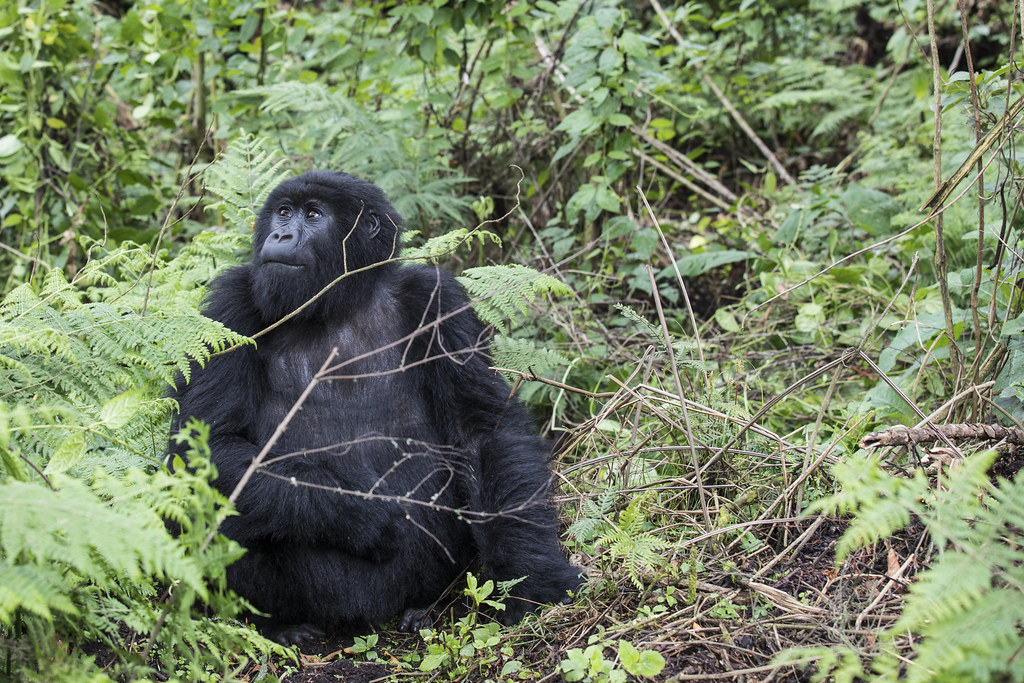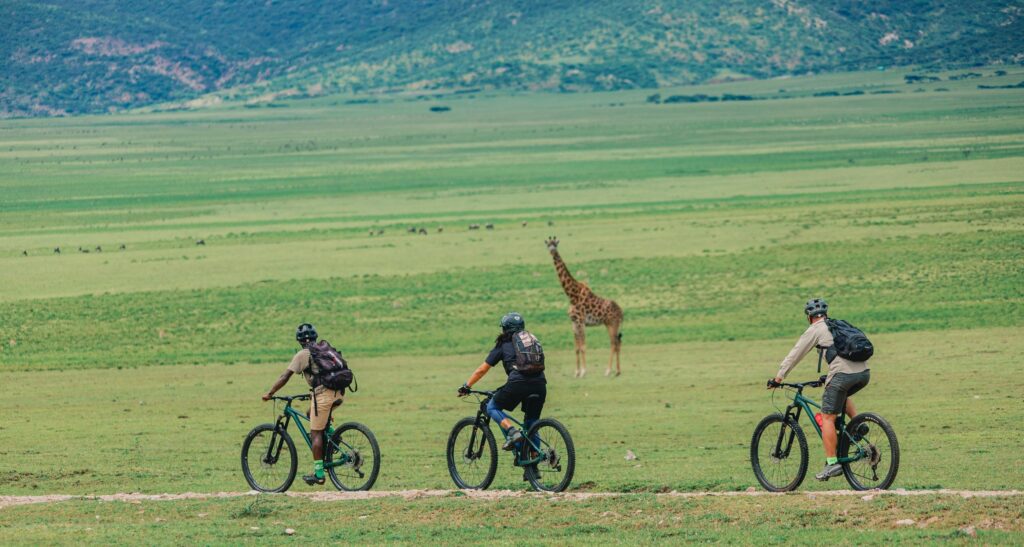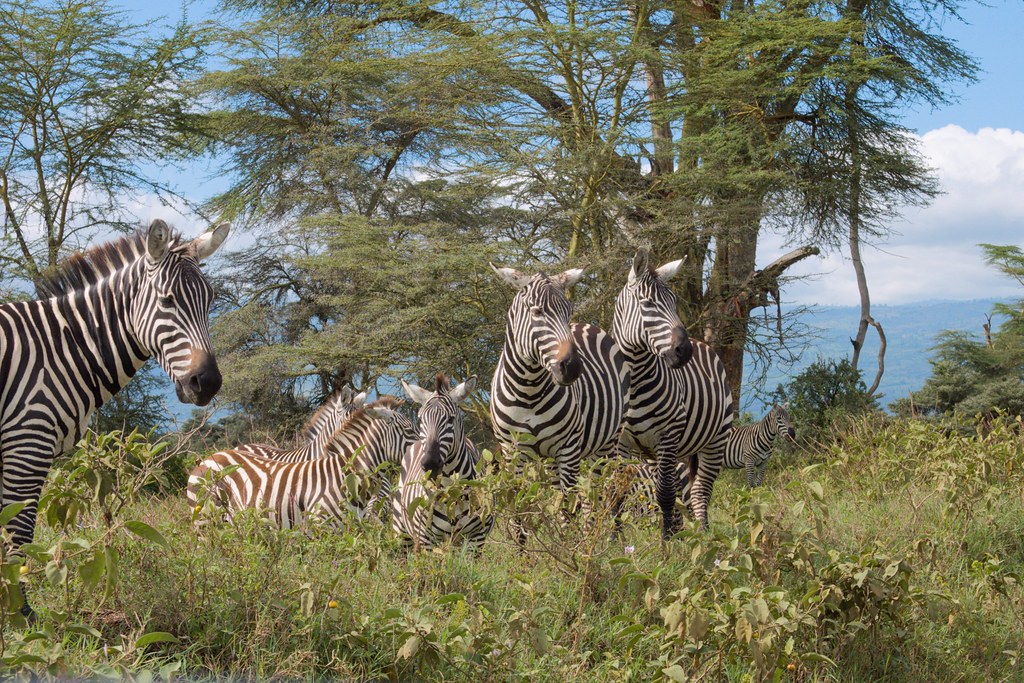Rwanda Gorilla Permits for 2024
Gorilla Permits for Rwanda in 2024: There are only three countries in the world where you can see mountain gorillas. With a forecasted global population of little over 1,000 in 2023, this primate is the largest in the world, reaching up to 200 kg/441 pounds. It is also one of the most endangered.
The well-maintained Volcanoes National Park is home to Rwanda’s gorillas, and those who enjoy primates can also ascend to the former research station established by the well-known Dian Fossey. One of Africa’s most exciting wildlife experiences is tracking gorillas here, but first you need to obtain a gorilla permit. This is an explanation of its meaning.
Why is a gorilla permit required in Rwanda in order to see gorillas?
Anyone who wishes to observe gorillas, whether in Rwanda’s Volcanoes National Park or another adjacent nation, is required by law to have a gorilla permission, also called a mountain gorilla tracking permit. This permission system has two goals in mind.
To begin with, it allows park rangers to regulate how many people visit each gorilla colony on any given day. Second, the associated fee has a substantial positive impact on the welfare of populations outside the park as well as gorilla conservation and habitat protection.
What is the cost of a Rwandan gorilla permit?
As of 2024, visitors from outside Africa must pay US$1,500 for a single gorilla permit in Rwanda. Only $200 is paid by residents of Rwanda and other East African countries. Foreign residents of Rwanda, as well as citizens and residents of other African countries, must pay a $500 authorization fee.
Gorilla permits in the Democratic Republic of the Congo (DRC) cost $400, while those in Uganda’s Bwindi Impenetrable or Mgahinga Gorilla National Parks cost $700. Virunga National Park, which closes to visitors in March 2020, is the only place in the DRC where mountain gorillas can be observed.
The park has not yet reopened because to serious security issues that are unlikely to be overcome in the long run, despite the fact that this was first done for COVID-19 reasons. Although it is currently possible to track gorillas in the Democratic Republic of the Congo’s Kahuzi-Biega National Park, where you may see eastern lowland gorillas instead of mountain gorillas, be aware that the DRC might not be as secure as Rwanda or Uganda.
Rwanda provides a 30% gorilla permit discount from November to May, which is the off-peak period. For non-African residents, this reduces the price to US$1,050. However, only those who reserve a minimum of two nights in either Nyungwe National Park or Akagera National Park are eligible for the discount.
How can I obtain or reserve a gorilla permit in Rwanda?
The Rwanda Development Board’s website allows independent travelers to directly reserve a gorilla permit online. It is more typical to let the operator make the reservation if you are traveling with them. Make sure to reserve your permit before committing to any other vacation dates because permits for any one day are often booked solid far in advance.
How many Rwandan gorilla permits are sold per day?
On any given day, Volcanoes National Park usually has 96 gorilla permits available. This lowers the number of licenses available for each of the 12 habituated gorilla groups to eight per day.
Volcanoes National Park is home to eight more habituated gorilla populations, however they are more elusive and primarily frequented by researchers. One of the gorilla groups that researchers frequently observe will be designated for a tourist visit in its natural habitat if one of the groups designated for visitors moves into Uganda or the Democratic Republic of the Congo.
What does the Rwanda Gorilla Permit cover?
The gorilla permit only allows entry to the relevant national park, the guided walk, and up to an hour with the gorillas, whether you are tracking in Rwanda or another part of the region. Porter fees, tracker and guide tips, and any other expenses related to accommodation, transportation, lunches, or other activities are not included.
How old can you be to go gorilla trekking in Rwanda?
The three countries where gorilla trekking is allowed have mutually agreed to strictly enforce a minimum age of 15 years. Gorilla trekking has no upper age limit, but because it’s a physically demanding activity, older travelers or anyone with limited mobility should think about whether they’re up to the challenge.
Can I receive a refund if I decide to cancel my Rwanda Gorilla Permit?
The price of your gorilla permit won’t be reimbursed if you have to cancel your trip to Rwanda or don’t show up on the scheduled day for whatever reason. Additionally, since your passport details will be compared to the permit before you go gorilla trekking, it is not allowed to sell or transfer a permit to another individual.
You can usually reschedule on a different day with at least 30 days’ notice if you book your permit through an operator.
Those who are unable to track because their assigned gorilla group unexpectedly migrates will either be given a complete refund or the opportunity to try again the next day. You will receive a 75% refund if you trail all day and don’t come across any gorillas.
What other activities are available in Rwanda besides gorilla trekking?
There are numerous more attractions in Rwanda, even if gorilla trekking is the most well-liked tourist activity there. In Nyungwe Forest National Park, you can accompany chimpanzees and see a range of different animals and birds that have adapted to live in forests. The Big Five—the lion, leopard, buffalo, elephant, and rhino—can be seen in Akagera National Park, a more conventional safari destination.
In summary, it is recommended to undertake gorilla trekking in one or both of these parks at any time of year. Additionally, you can get a 30% discount on your gorilla permit if you visit the other two parks for at least two nights between November and May.
Enquire & Get More InformationFind out More About This Blog With A Chat With Travel Specialist Who Is Also Ready To Help You Set Your Tailored Trip With Free Travel Advice and Tips


